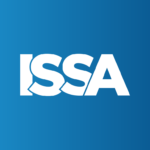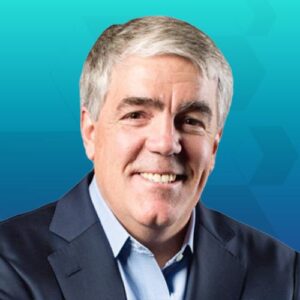During the height of the pandemic, 1.6 million businesses experienced government-mandated closures. Because of their essential status, many distributors did not.
Instead, they rose to the challenge of serving their customers while facing never-before-seen hardships including increased health and safety measures, plant closures, limited supply and social-distancing safeguards. Each disruption forced companies to change the way they did business.
Now, past the firefighting stage, distributors are still facing challenges that are having a greater impact on their businesses now than pre-pandemic, including:
- Shifting employee needs and wants
- Supply chain issues
- Inflation and other economic trends
- Recruitment and retention challenges
- Early retirements
- Work-life balance shifts
- Hybrid workforces
- Generational shifts
The forces of accelerated change outlined above are redefining everything. This Great Redefinition is resulting in record numbers of employees quitting their jobs — some for good, others in search of something better.
In a recent study by Personal Capital and The Harris Poll, 90% of Gen Z respondents wanted to change jobs. And 85% of Gen Z workers would agree to a tradeoff such as a pay cut to work from home when they want, a higher percentage than the other generations in the survey.
Think about the implications of that data point: How we live, work and play has been redefined. How we recruit and treat our teams has been redefined. How we lead has been redefined. Because if our employees don’t find purpose and meaning in the work they’re doing today, they will likely go somewhere else.
The bottom line: It’s about more than “just a job.” It’s about the human at the center of it all.
Instinctually, we know that. The pandemic put a spotlight on that. And now our research has proven that out.
The very nature of leadership in distribution is changing more rapidly than most of us realize. About 78% of respondents in our survey agreed with this premise. And, as a result, 83% of leaders believe we must lead differently coming out of the pandemic than how we led going in.
Editor’s Note:
Dirk Beveridge is a featured speaker at MDM’s upcoming SHIFT | The Future of Distribution conference Sept. 25-27 in Broomfield, Colorado. On the morning of Sept. 27, Beveridge will deliver a “Re-Imagine Leadership for Distribution” session that will share findings from UnleashWD’s new research on leadership in distribution. Immediately following that, Beveridge will host an “Innovating Distribution Culture Panel.”
We talk nonstop about disruption to business, and how can we ensure sustainability, relevance and profitability going forward. That’s all true, but we need to get beyond that. The pandemic highlighted the more deeply felt personal nature of this disruption. It’s forced a re-evaluation of what employees want.
- People no longer want to be managed.
- Work-life balance is being redefined as life-work balance.
- Leaders must consider the whole person.
- Leaders must acknowledge the speed and confluence of change and the impact of that on their teams and their customers.
One distributor put it this way:
“In our industry, from employee engagement to customer relationships to supply chain management, leadership is being put to the test. How people work and the environment they are willing to work in is at an inflection point. How we serve our customers and earn their business is not just business as usual.
“It requires leaders to assess from the top down all aspects of their business models, take a hard look at outdated business and management practices that no longer serve their communities, and be willing to make the changes necessary to be competitive in a post-pandemic world.”
Leaders at distributors like Robert Weed Corp. – a stop on this year’s We Supply Tour – are reconsidering how they need to lead going forward in light of the acceleration of change. Robert Weed, for example, has brought in a life coach to support its team and has reconfigured its shifts to align better with its team’s needs, such as childcare schedules.
We cannot lead our teams the same way we always have. A little more than half of survey respondents believe distributors are currently leading in a controlling or managing way — an antiquated approach given today’s conditions. As one respondent said: “Distribution is in danger of becoming an extinct business model if management philosophies continue to remain archaic.”
Just 6% believe distributors are currently being led by a noble calling, the highest form of leadership — one that is driven by a higher purpose beyond just the bottom line. One where management is focused on and investing in empowering all employees to achieve their potential.
It’s a sentiment shared by many others. Distributors made it clear that success will be based on their ability to innovate the leadership role — to anticipate the changes and challenges ahead and make plans to meet them head-on. Leaders who invest in empowering employees to be the best version of themselves will win.
To that end, 93% of executives said the human element will play a bigger role in leadership going forward. Your ability to grow and develop the individual will be critical to success.
Learn more about our research.
Related Posts
-
Distribution leaders have played a mostly reactive role as conduits for products and services — but…
-
See the newly-elected board members for the Worldwide Cleaning Industry Association.
-
The manufacturer/distributor says Don Freeman and Kevin Blossom have been promoted to president positions.






